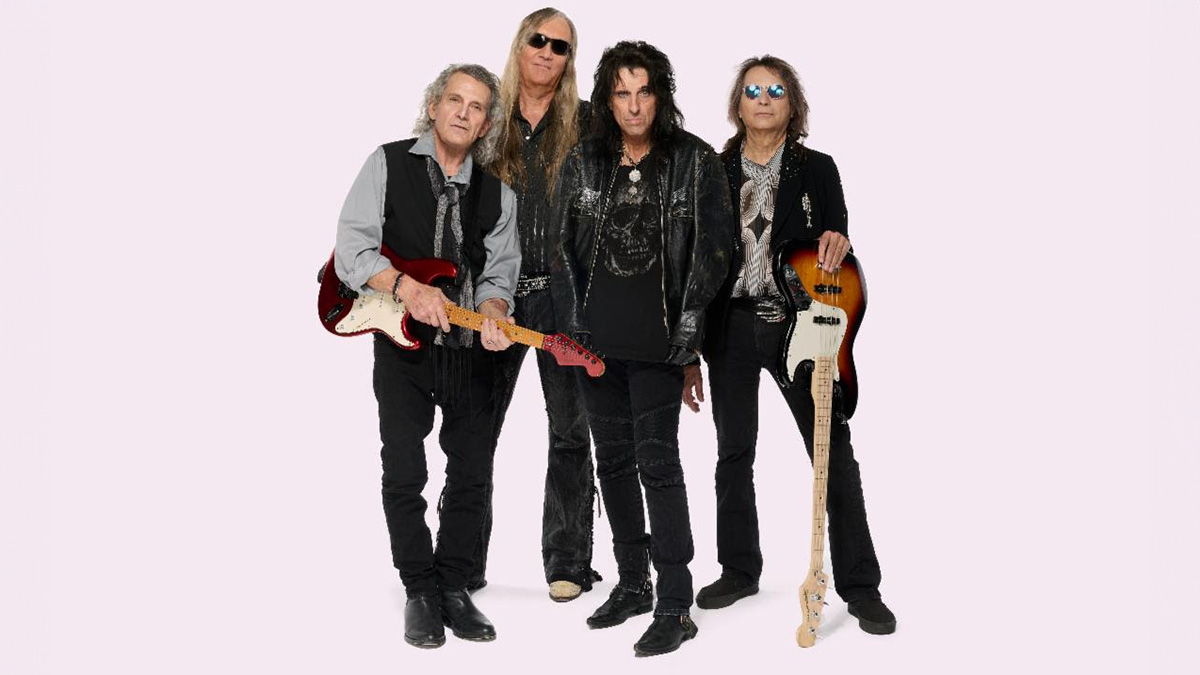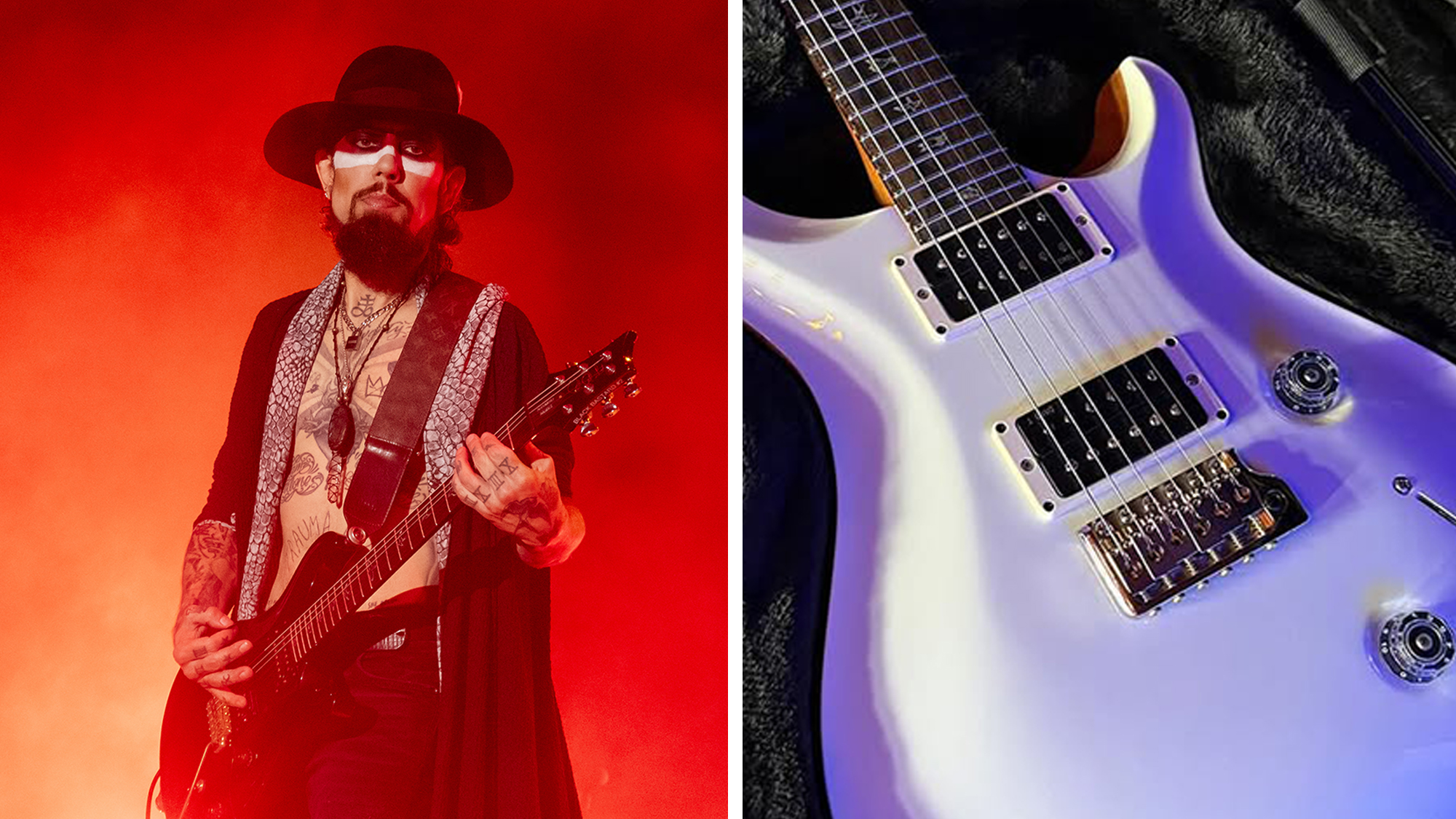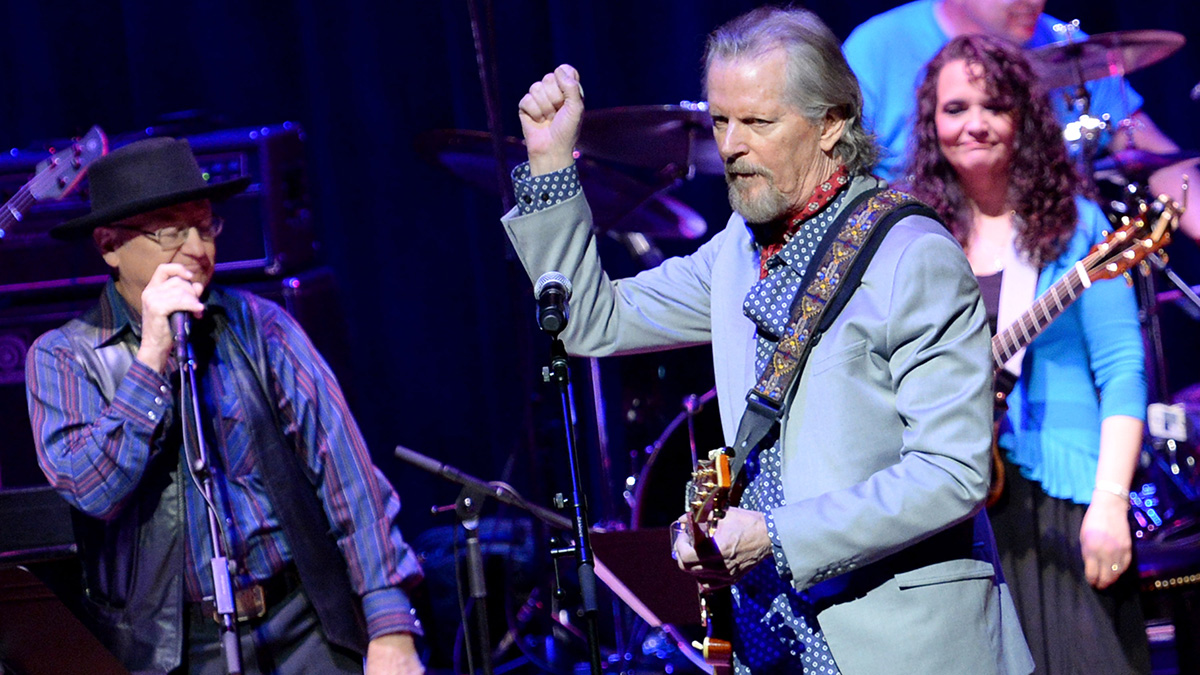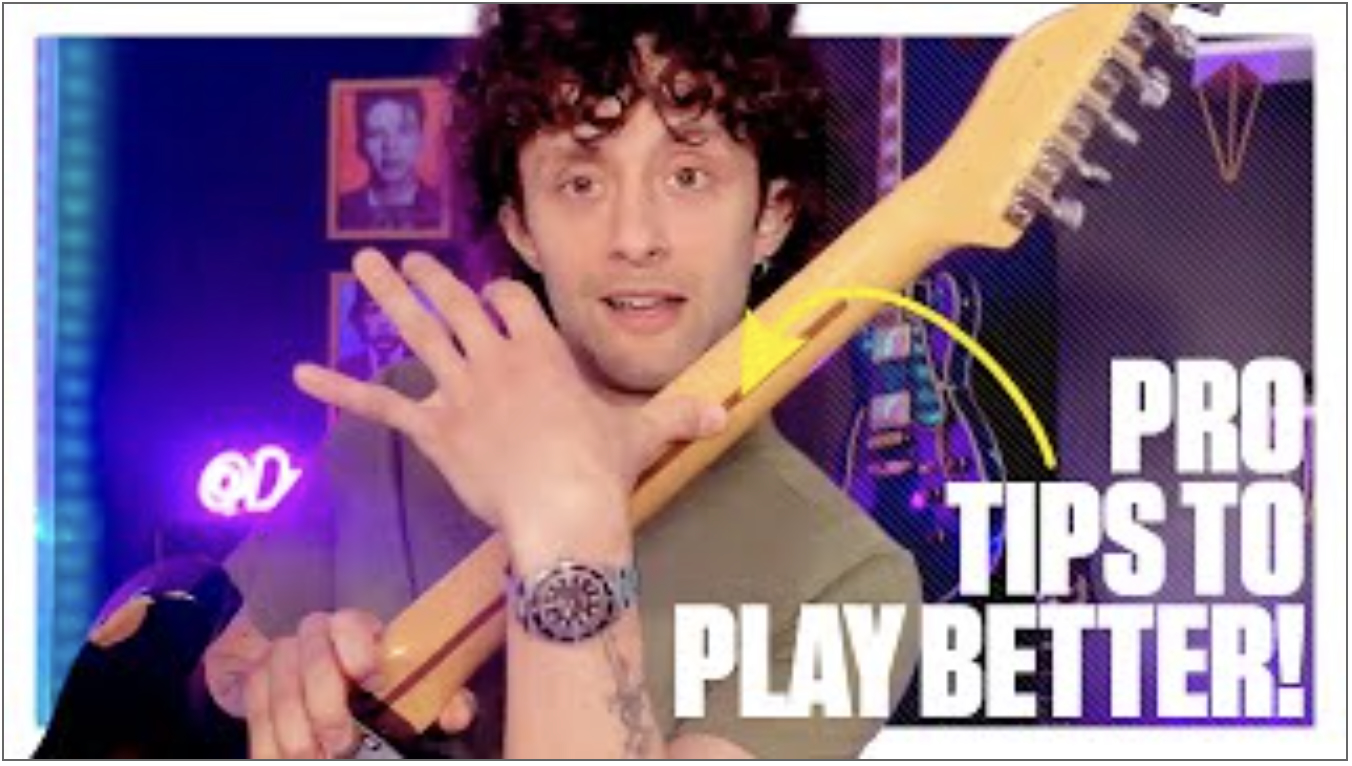Interview: Steve Howe of Yes and Asia Answers Guitar World Readers' Questions
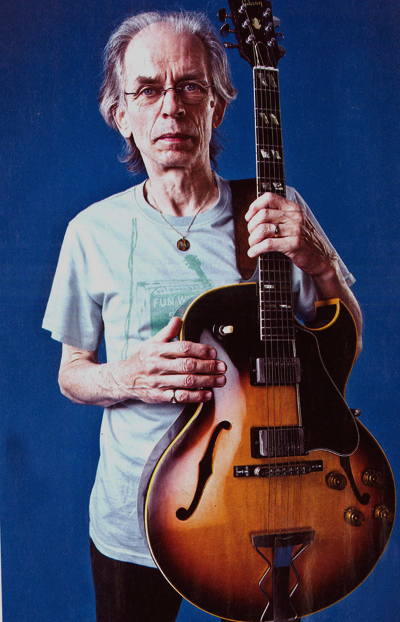
It's always nice when a member of Yes stops by for a visit.
Such was the case when Yes guitarist Steve Howe dropped by the Guitar World office late this summer, 1964 Gibson ES-175 in hand.
The story below represents the bulk of my interview with Howe from that day. This portion of the interview is a "Dear Guitar Hero" feature, which finds him answering questions from Guitar World readers. For the rest of this conversation -- including five interesting bonus questions (and answers) -- click here.
And since we're in a Yes state of mind (Well, at least I am), head in this general direction to read my recent interview with Yes bassist Chris Squire.
How old were you when you started playing guitar? -- Jason Botham
I wanted to start when I was 10. I pestered my parents for two years, and they kept saying, "No, no, no." And I’d say, "Yeah, yeah, yeah." So basically, I started when I was 12, Christmas of that year.
What’s the first song you learned to play on the guitar? -- Jamie Blundell
Get The Pick Newsletter
All the latest guitar news, interviews, lessons, reviews, deals and more, direct to your inbox!
I think "Apache" by The Shadows was the first thing I did, the first case of "I can play this." At the time, that was the kind of tune you had to know. If you played it like the record, everybody said, "That's great." But I played it at the first concert I ever did, and nobody tuned up, nobody rehearsed it, and it sounded dreadful. And I thought I was never going to go on stage again, but then I kind of got into it.
How many vintage instruments do you own? -- Victor La Squadro
I've got about 100 guitars, mandolins, banjos, steel guitars, that kind of thing. I got it down to 100 from 175 through giving a few away, losing a few, selling a few, trading a few. I think a guitar collection should never be static. So that ranges from antiques, guitars I use for my work in the studio and on tour and other stuff that I just like -- everything you can think of that's got strings on it.
What's the craziest thing that's ever happened to Yes on stage? -- Eldon Wolf
Well, Yes might have some craziness, but it's not really very crazy. It's more like “twee” crazy. But one day we had a round stage, and it stopped going around. It happened twice, actually. You had to push the bloody thing. We had motors, but quiet often the motors failed. Then we had a really big one on the reunion tour and I think one time that stopped. Nobody pushed that, because you can't push it. You had to fix it. So we actually had to stop the show and go off the stage. That was a pretty big anti-climax.
What are your thoughts on John McLaughlin and Paco de Lucia? -- Daniel Michael Serapin
John McLaughlin is just wonderful. I've known about John since about 1965. He was in a group called Geno Washington & The Ram Jam Band, which doesn't sound very John McLaughlin, does it? I got a lot of ideas from John. He was great then and he's still wonderful. I love his warmth and friendliness; also my son, Dylan, is one of his biggest fans. And Paco de Lucia -- I saw them playing together once. I see them as poles apart because they both invented their own genres, if you like. When Paco came out with that group of his, it was like music had been reinvented. But McLaughlin did the same thing. Mahavishnu was a completely new kind of group to have. I like them dearly, and you have to be pretty good to be in that bracket.
How about Allan Holdsworth? -- David Beardsley
Alan is a remarkable guitarist. He plays guitar like he's just been in prison for three years and then he's been let out. He has this marvelous fluidness … I don't know how to talk about the guy, because he's so far out there that he's probably technically the most brilliant guitarist in the world. You have to say, he's kind of jazz. Maybe he doesn't like that word, and most probably it's the wrong word, but he's a wonderful improviser. I mean he's unrivaled.
Will Steve Hackett and Steve Howe collaborate on another GTR album? -- Harley J. Barnett
Will the world ever find peace? [Laughs] I love Steve, he's a lovely guy. We did GTR, which was a kind of surprise to us both. Somehow Steve and I invented that GTR album by sitting down in a room for three months or something. We had a good time. We really got to know each other and like each other in that writing period. And everything about the good in that record was quite difficult. It kind of went downhill from there. But if Steve and I could imagine -- it's a matter of imagination in this business -- if we could imagine another phase of GTR, we'd do it. I don't think we have any restrictions. Of course, Steve is tied up with another member of Yes at the moment. He's done a record with Chris. Where that's heading, when it comes out, what it's called -- I don't know, but it's a collaboration.
Ozzy Osbourne once said that Yes had cardboard cut-outs of farm animals in the recording studio. Is this true? -- Curtis Afield
It's partly true. We were making Tales from Topographic Oceans, and we were in a studio called Morgon. It was the first 24 track-studio in London, and we were there for four months. When we got in the studio, being post-hippie, we needed to make it a bit friendly. Jon said, "I'd like a bathroom to sing in." So he had three walls brought in, tiled, and he sung in a booth with three walls of tiles so it sounded like his bathroom. Jon and I were having a lot of fun. The other guys needed dragging up a hill backwards to do this record, because they weren't really sure whether we were too out of it or whether we had a good idea. So anyway, they weren't cardboard. They were a little more substantial than cardboard; they were like hardboard cows. So, let's correct that: Cardboard, no; hardboard, yes.
Do you plan to continue to balance your time between Yes and Asia in the coming years? -- Brian O'Sullivan
I'm going to balance it better, because both groups have a potential to go forward, but I want more time to do some Steve Howe Trio next year, because if I'm going to sacrifice my Trio, I'm only going to do it every other year. This year is a non-Trio year. Next year is a Trio year. And if you work backwards, that's what I've been doing. We've done two albums, The Haunted Melody and Traveling, and I know it's like a side project, but [his son] Dylan is really happy to do it. We've done Canada, England and Europe a little bit, but we've never been to the States, so it seems a bit of a shame. Next year, I'd like to do that. So, yeah, dividing my time has become a little bit of a nightmare. You know the stuff I do solo is really important. It's bit of life blood, my sanity, and my outlet where I can release the music, that features just guitar. So both things, Trio and my solo work, have got to be built into next year, more than maybe Yes and Asia realize.
What's your favorite breakfast cereal? -- Evan Chandler
I have a favorite breakfast cereal. It's what we call porridge, but you call it oatmeal. That to me is the most rewarding and delicious cereal. Obviously if you get it out of a packet and put it in a microwave, then forget it, it's rubbish. If you go to a health store and get some organic oatmeal, I would buy the small one, not the big things. Who needs giant oatmeal? Scary! Let's have normal-size oatmeal. If you want to do it the Steve Howe way, it’s one cup of oatmeal, one cup of water and one cup of milk, and that gives it a nice creamy texture. Don't put sugar in it, on it, or anywhere near the kitchen table. Through all sugar in the rubbish bin immediately and then stop eating sugar and you'll actually get to taste things, like I can. I don't eat sugar, haven't eaten it in 15 years, maybe. And that allows me to really taste things. Believe me: Everything with sugar in it tastes like sugar. So that's my favorite cereal. To make it better, get an organic banana. Bananas have to be organic, because everything they spray on bananas goes right through the skin and into the food and you're eating pesticides.
How does it feel to be one of the most amazing guitarists in the history of the instrument? -- David Williams
What's inspired me to be as good as I am is other people. Flavio Sala is a classical guitarist from Italy. When I heard his record, I stopped in my tracks. This is how I describe seeing Albert Lee in 1966. I was playing at Watford Town Hall with Chris Farlowe and the Thunderbirds. Chris comes out to me and says, "I've got a new guitarist, you’d better watch it." So I said, "All right, Chris, I'll be out then." So I'm out there, and when Albert played, I almost fell over. And he had the most penetrating Les Paul Custom sound I've ever heard. Very penetrating. Two pickups on at the same time – doink! In the '80s it was Steve Morse, in the ‘90s it was Martin Taylor. There's always guys coming along, and when they come along, I praise them and say, "This guy knocks me out. Get him on the phone.” Flavio came and played in my hotel room when I was on tour in Brazil. That was an honor, a thrill.
Who do you think are the best prog rockers that followed Yes since the '70s? -- John Atkinson
Dream Theater’s John Petrucci is a great example of a continuing progrock guitarist. I think Steve Morse is an example. Look what he's done with his band and Dixie Dregs and Deep Purple in a way. He's no ordinary guitarist, that's for sure. I think “prog” should be replaced with “original guitarist.” There's lot of room for originality in this business. I think that's what a prog guitarist has to be. Dave Gilmour didn't join Pink Floyd in the '60s. Wasn't it in the '70s? In a way, there was a development of music that we had a hand in -- prog was a term. But what that meant was drawing in all influences you can think of. You know, flamenco, jazz, classical. Bring those together -- but you're a rock guitarist. That's what the quest was. Anybody that does anything like that, is really a prog guitarist. And I think there's more out there than we realize, like Porcupine Tree. You know those guys -- pretty cool.
Do you give lessons? -- Kendall Gizma
Well, when someone asks me if I’ll do a master class, I say, "No, but, I'll do a workshop." A workshop is kind of an interactive thing, and I do stuff where I play people music and talk about music. It's something different. I don't really have time to do one-to-one lessons, but you never know. I'm might do something where you can shout out, "Play ‘Siberian Khatru,’” and then I could show you.
I saw the tour with Asia and Yes. As a 60-something-year-old, is there any special preparation in terms of standing on stage for that long? -- Joseph "Plumb" Martin
The person who is most unhappy about it was my wife. She said, "You have to be crazy." And I said, "Well, I worked this thing out with both bands, and basically, Asia is going to play 50 minutes and Yes are going to play an hour and a half. When you put those together, that's 2 1/2 hours.” So I said, "If you remember, that's what I played every night with Yes." So eventually, my wife accepted the work. It was great fun, pulling together the two bands.
Photo: Dale May

Damian is Editor-in-Chief of Guitar World magazine. In past lives, he was GW’s managing editor and online managing editor. He's written liner notes for major-label releases, including Stevie Ray Vaughan's 'The Complete Epic Recordings Collection' (Sony Legacy) and has interviewed everyone from Yngwie Malmsteen to Kevin Bacon (with a few memorable Eric Clapton chats thrown into the mix). Damian, a former member of Brooklyn's The Gas House Gorillas, was the sole guitarist in Mister Neutron, a trio that toured the U.S. and released three albums. He now plays in two NYC-area bands.
“I knew the spirit of the Alice Cooper group was back – what we were making was very much an album that could’ve been in the '70s”: Original Alice Cooper lineup reunites after more than 50 years – and announces brand-new album
“Such a rare piece”: Dave Navarro has chosen the guitar he’s using to record his first post-Jane’s Addiction material – and it’s a historic build
